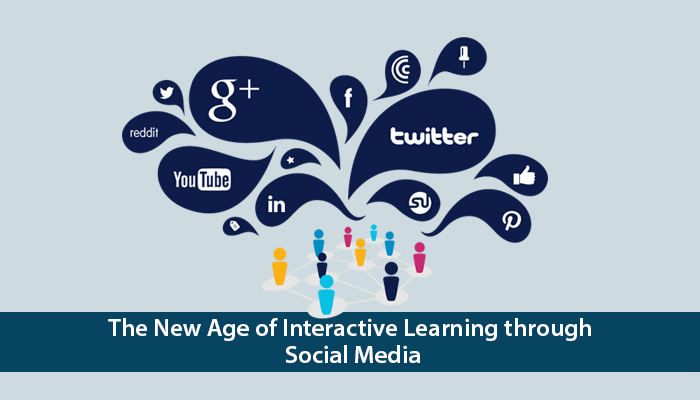e-Learning Ecologies MOOC’s Updates
Social Media Learning
On a simple level, social media is about sharing photos, opinions and events, and connecting with others. Social media learning, however, is a powerful paradigm that enlists twitter, facebook and blogs to enhance the educational experience. It breaks away from the confines of traditional pedagogical structures, and the one question-one answer dynamic, and creates a collaborative and interactive experience where ideas can flourish.
In the context of elearning ecologies, social media learning provides the crucial infrastructure - or “scaffolding” - for self-aware, independent and reflexive learning. In this course, we were invited to join different social media platforms, Google+, facebook and twitter or the custom-built Scholar. In discussion forums, the student is transformed from a passive recipient of the teacher's knowledge, into an active player, sharing knowledge and insights with fellow students, and (as is shown in this very exercise) providing valuable feedback on the contributions of their peers.
Cathy N. Davidson, a professor of interdisciplinary studies at Duke University, describes the way the digital environment enhances collaborative and unfettered learning styles in her essay, Collaborative Learning for the Digital Age, http://www.chronicle.com/article/Collaborative-Learning-for-the/128789/. She discusses the power of “crowdsourcing” in developing ideas and creating solutions (and that fittingly, Twitter's “Birdie” logo was the winning contribution in an online contest). Davidson uses the term “participatory learning” - an alternative to social media learning - to describe learning from one another's differing perspectives and skills. She acknowledges that although it can be seem to be a chaotic and tangential style of gaining knowledge, it is essential and surprisingly efficient, at making learning meaningful.
Davidson's experimental work is interesting because she displaced the core curriculum with participatory learning. Even where more formal and traditional structures are retained, the addition of social media platforms provides opportunities for sharing ideas amongst colleagues - crucially in a less formal environment. Davidson found that her students expressed themselves more fluently and engagingly in blog entries than in their formal, academic essays. Their work was transformed into personal, meaningful accounts of discovery (and contained fewer errors and less plagiarism). Curation and moderation of ideas is maintained, but there is a sense of greater freedom of expression. My firm has recently (re)launched yammer as a means of breaking through traditional work silos. After a few months, there is a growing cross-fertilisation of thoughts and contributions across geographic zones and business groups, stronger collaborations, and a lot of likes. I have discussed projects with my senior manager in London, or colleagues in Sinagpore and Hong Kong, whereas I would not usually have (or make) these direct opportunities outside the yammer platform.
This graphical representation of social media, found in the article, The New Age Of Interactive Learning Through Social Media, https://elearningindustry.com/new-age-interactive-learning-social-media, shows the interplay of many voices and responses. (The size of the social media platforms do no correspond to their effectiveness or use!). Social media learning, as part of ubiquitous learning, acknowledges that we all have a lot to offer. Reading through the list of participant profiles for this course, it’s clear that our various backgrounds and life experiences will bring rich contributions, and demonstrate the value of reflexive elearning.
Useful reading on social media learning
Collaborative Learning for the Digital Age, http://www.chronicle.com/article/Collaborative-Learning-for-the/128789/
Debunking 4 Myths of Social Learning, http://www.blackboard.com/sites/social/thought-leadership/myths.html
Law schools told to leap into social media learning, Australian Financial Review, 31 May 2013, http://www.afr.com/technology/law-schools-told-to-leap-into-social-media-learning-20130530-jhq1j#ixzz4dkKn0BLR. The article referred to is available here, http://www3.austlii.edu.au/au/journals/JlALawTA/2012/15.pdf
The New Age Of Interactive Learning Through Social Media, https://elearningindustry.com/new-age-interactive-learning-social-media
The Significant Benefits Of Social Learning, http://www.teachthought.com/learning/3-benefits-of-social-learning/
Using Social Media to Drive Social Learning, https://www.td.org/Publications/Blogs/Learning-Technologies-Blog/2016/01/Using-Social-Media-to-Drive-Social-Learning


